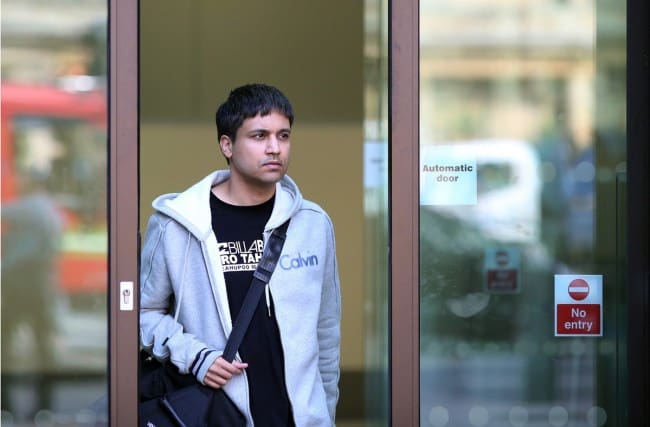The trader accused of rigging Wall Street shares from a bedroom in his parents’ house in London was told yesterday by a judge that he will be extradited to the United States, where he faces trial and a potential jail term of up to 380 years, reports The Times.
Navinder Sarao, 36, was told that he will be sent to America over claims that he helped to cause a “flash crash” on May 6, 2010, in which the Dow Jones industrial average fell by more than a thousand points, wiping hundreds of billions of dollars off the value of stocks.
In a short hearing at Westminster magistrates’ court, District Judge Quentin Purdy said that the Hounslow-based trader should be extradited to answer charges that he used illegal “spoofing” techniques to manipulate the US stock market.
American prosecutors allege that Mr Sarao made at least $40 million through sophisticated computerised trading that he moved offshore to tax havens, including the Caribbean island of Nevis, as part of an “avoidance strategy”. He faces trial on 22 charges, ranging from wire fraud to commodities manipulation on US futures markets during a four-year period.
Speaking outside court after the judgment, Richard Egan, Mr Sarao’s solicitor, said that his client would appeal. “We are very disappointed,” he said. “We thought we had a strong argument. We will be going to the High Court to make our arguments there.”
The final decision on whether to send Mr Sarao to the United States rests with Theresa May, the home secretary, who must approve any request by a foreign government to extradite a British citizen.
Mr Sarao is on bail but has spent a time behind bars already. After his arrest last April, he was in prison for more than 100 days after he was unable to pay a security of more than £5 million after his assets were frozen by a US court. He was freed later on a £50,000 security put up by his family.
Millions of pounds of Mr Sarao’s assets have been entrusted to his US legal team, who are holding them subject to the result of the case.
At a hearing in February, James Lewis, QC, representing Mr Sarao, said that the claims against his client were nonsense and called on an expert witness report produced for the defence by Lawrence Harris, a Californian academic, that dismissed the idea that his trading had caused the flash crash.
Judge Purdy noted that the crash had not been caused by “a single action and cannot on any view be laid wholly or mostly at Navinder Sarao’s door, although he was active on the day”. However, the judge said that the day of the crash was only one of more than 400 days of trading activity in the prosecution’s case.
Mr Sarao’s fate is being followed closely by City lawyers. “The latest ruling underscores the US long-arm approach to law enforcement and the UK’s willingness to go along with it,” Barry Vitou, a corporate crime expert at Pinsent Masons, the law firm, said.
“The takeaway is that just because you are thousands of miles away, don’t assume that your actions will escape a prosecuting authority in the US.”


